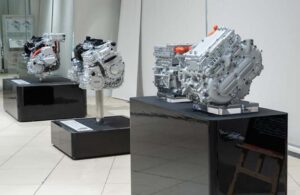Japanese multinational company, Nissan Motor Co. has announced to develop new modular powertrains that will help streamline production and drive manufacturing costs for hybrid cars down by as much as 30%.
 By enhancing the common parts that underpin a vehicle, the Yokohama-based automaker expects to be able to lower the cost of its hybrid cars to the same level as gasoline-powered cars by 2026, Senior Vice President Toshihiro Hirai said at a briefing.
By enhancing the common parts that underpin a vehicle, the Yokohama-based automaker expects to be able to lower the cost of its hybrid cars to the same level as gasoline-powered cars by 2026, Senior Vice President Toshihiro Hirai said at a briefing.
Nissan unveiled blueprints for two new powertrains — one for its so-called E-power hybrids and another for its zero-emission vehicles.
Both use similar technology that will help consolidate and localize production, points Nissan touched on late last month when it outlined its accelerated electrification strategy.
As carmakers globally rush headlong into electric vehicles, Japanese automakers, notably Toyota Motor Corp., say they’re taking a more nuanced approach, continuing to invest heavily in hybrids.
Their belief is that consumers won’t want to switch to electric cars overnight, preferring instead to wait until the technology develops and the cost of EVs comes down. There are also concerns about whether sufficient charging infrastructure for EVs will be in place.
Pure electric and hybrid cars accounted for about 52% of Nissan’s total sales in Japan during the second quarter of fiscal 2022. Although the bulk of that came from hybrids, it’s an improvement from just 12% in 2016.
Nissan’s new powertrains will go into production as early as 2024, Hirai said.
Hirai also said that reliable, functioning batteries that don’t cost a fortune to produce or require dwindling rare Earth metals to create are still the missing linchpin for EVs.
He added Nissan is committed to developing next-generation solid-state batteries.

